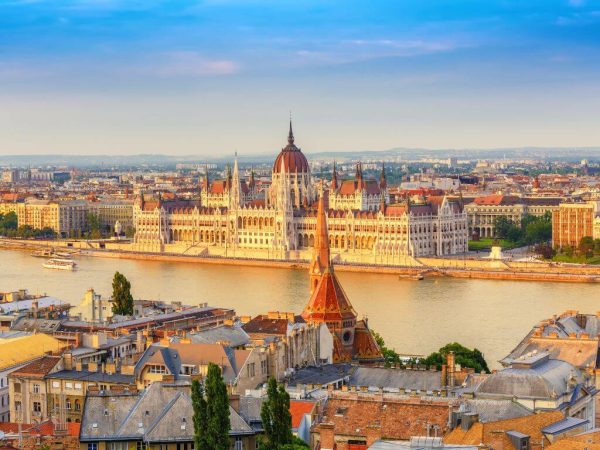In the pursuit of global mobility and business opportunities, obtaining European Union (EU) citizenship offers many benefits, including the right to work, study in any EU country, and visa-free travel to over 170 countries. The pathway to EU citizenship involves four main avenues: citizenship by descent, marriage, naturalization, or investment. The choice among these routes depends on the specific country, with general requirements including eligibility, legal residence, language proficiency, and integration.
For individuals seeking a faster track to EU citizenship, investment programs in various countries provide enticing options. Here, we delve into some prominent avenues, with a particular focus on the Greek Golden Visa, as well as the addition of the Hungary Golden Visa.
 Greek Golden Visa: Navigating New Heights
Greek Golden Visa: Navigating New Heights
The Greek Golden Visa program has witnessed a transformation with a revised minimum investment threshold, which increased from €250,000 to €500,000, effective July 31, 2023, for real estate investments. Despite this change, the benefits of this program remain compelling. Beyond the right to live in Greece, the program offers visa-free travel within the Schengen area, family reunification opportunities, access to public healthcare and education, and a low investment threshold in select areas like Athens, Thessaloniki, Mykonos, and Santorini.
Upon securing a Greek Golden Visa, you and your family gain the freedom to travel across 27 European countries in the Schengen area without the need for additional visas. The absence of stay duration limits or minimum stay requirements enhances the flexibility of this program, making it an attractive option for those seeking EU citizenship.
Hungary Golden Visa: A Gateway to European Excellence
Adding to the array of opportunities, Hungary’s Golden Visa program, which seems to be effective in July 2024, stands out as a viable route to EU citizenship. Hungary offers a diverse range of investment options, including real estate funds, purchasing residential properties, and contributions to Hungarian universities.
Investment opportunities under the Hungary Golden Visa program will include:
Real Estate Funds: A minimum €250,000 of investment in qualifying real estate funds.
Purchasing a Residential Property: A minimum €500,000 investment in qualifying real estate.
Donation: Contributing a minimum of €1,000,000 to a Hungarian college or university supported by a public charity foundation.
Similar to other EU countries, applicants must meet certain criteria, including a clear criminal record and compliance with health insurance requirements. The Hungary Golden Visa program opens doors to residency and over time, citizenship, providing individuals with the chance to live, work, and study in Hungary while also enjoying visa-free travel within the Schengen area.
 Comparative Analysis: Other Leading EU Citizenship by Investment Programs
Comparative Analysis: Other Leading EU Citizenship by Investment Programs
Portuguese Golden Visa
In Portugal, the Golden Visa program has undergone significant changes, discontinuing real estate purchases as qualifying investments. Instead, options include job creation, research investment, support for artistic production or cultural heritage, and forming a company with job creation.
Antigua and Barbuda
The Citizenship by Investment program in Antigua and Barbuda, launched in 2013, offers affordable investment options, including contributions to the National Development Fund, real estate, business investments, or the University of the West Indies Fund.
Malta
Malta’s Citizenship by Investment program attracts foreign investment and expertise, requiring a minimum investment amount and proof of residency for 12 or 36 months.
Spain Golden Visa
Spain’s Golden Visa program provides various investment options, such as real estate, government bonds, or shares in Spanish companies. It opens the door to residency, potential permanent residency, and, after a decade, citizenship through naturalization.
Italy
Italy’s Golden Visa program, introduced in 2017, grants a residence permit for two years, extendable for an additional three years. After ten years, participants can apply for Italian citizenship.
 Financial Considerations: Investment Costs for European Citizenship
Financial Considerations: Investment Costs for European Citizenship
Understanding the financial aspects is crucial for those considering EU citizenship. Here’s a glimpse of the investment costs associated with each country:
Portugal: €500,000 investment in a qualifying fund.
Greece: €250,000 investment in real estate.
Antigua and Barbuda: Investment options range from $100,000 to $1,500,000.
Malta: €600,000 investment after 36 months of residency, or €750,000 after 12 months.
Spain: €500,000 in real estate, €2 million in government bonds, or €1 million in shares of Spanish companies.
Italy: €2 million in Italian government bonds, €500,000 in an Italian limited company, €250,000 in an Italian innovative startup, or a €1 million donation to a philanthropic initiative.
These costs may vary based on specific program requirements, and potential investors can explore tailored residency or citizenship solutions with the guidance of consultancy services like Beyond Global Partners.
Your Path to European Citizenship
Exploring the journey to obtain EU citizenship through investment requires careful consideration of the available options, program specifics, and associated costs. As the landscape evolves, staying informed about the latest updates and changes is crucial.
Beyond Global Partners stands ready to assist high-net-worth individuals in navigating the intricate process of securing second passports or permanent residency. With a focus on client needs and a wealth of expertise, Beyond Global Partners ensures a seamless journey toward unlocking the vast opportunities that EU citizenship affords.




